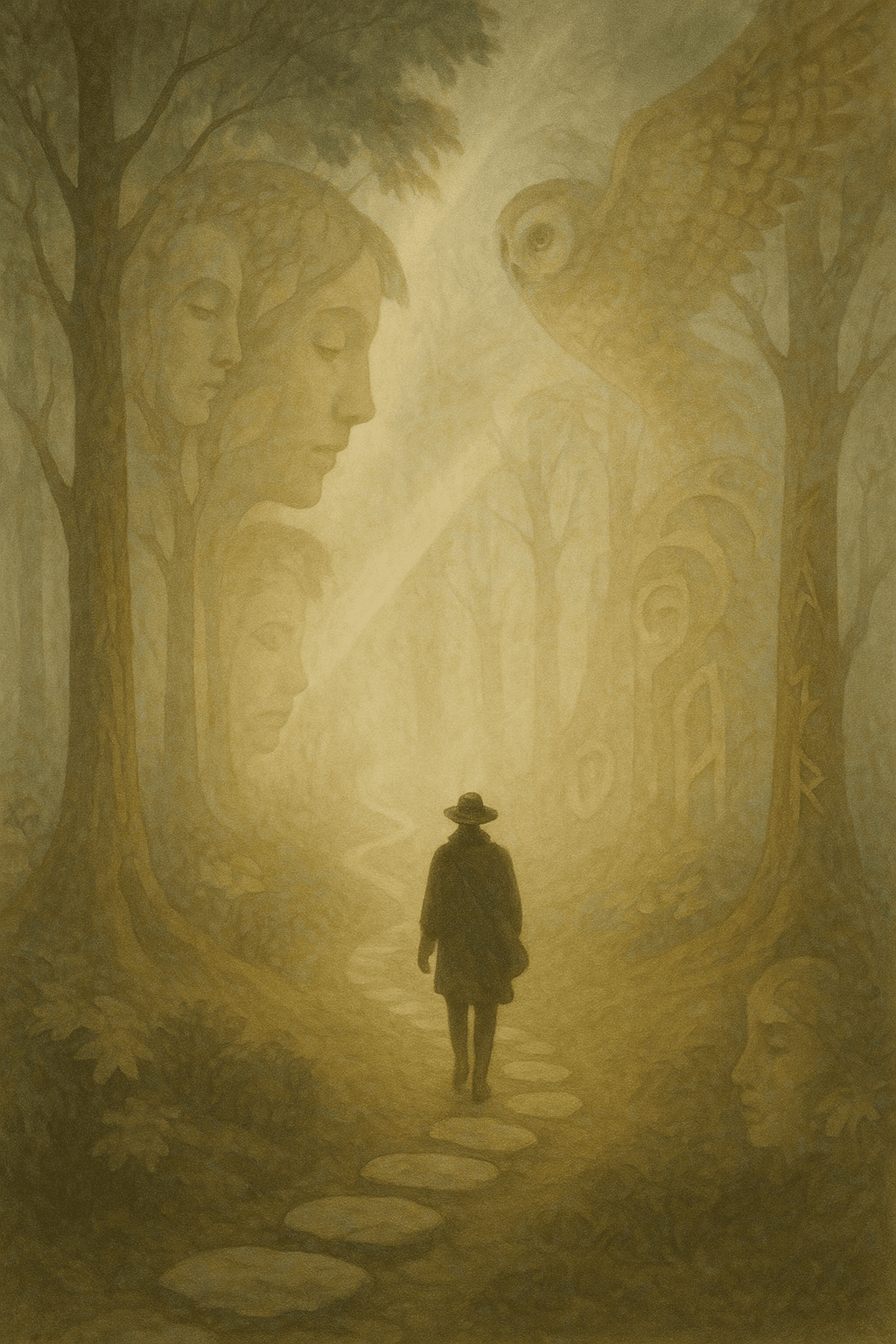Perceiving the Invisible Within Life’s Tangible Path

Wisdom is learning to see the invisible while walking the visible path. — Albert Camus
—What lingers after this line?
One-minute reflection
Where does this idea show up in your life right now?
The Essence of Camus’s Paradox
Albert Camus’s thought encapsulates a compelling paradox: wisdom is not merely a product of tangible experience but arises from perceiving what lies beneath or beyond the surface. His statement invites us to imagine daily existence not just as a set of visible actions, but as a journey guided by unseen truths. Through this lens, the most profound insights are accessible only to those who attend to subtleties rather than surface appearances.
Invisible Realities in Philosophical Tradition
Expanding upon Camus’s insight, Western philosophy has long emphasized the significance of the ‘invisible.’ Plato’s Allegory of the Cave depicts prisoners mistaking shadows for reality, recognizing truth only upon perceiving the world beyond their immediate senses. Likewise, Camus suggests that true wisdom demands venturing beyond the comforts of perceptible routine to discover underlying meanings that are not immediately obvious.
The Role of Intuition and Perception
Transitioning from philosophical theory, the practical process of ‘seeing the invisible’ often involves intuition—a form of understanding that evades logical analysis yet proves indispensable in decision-making and creativity. As Carl Jung argued, intuition is vital for perceiving possibilities within the visible world, suggesting that wisdom relies on both conscious observation and an acutely developed inner sense for what remains unseen.
Everyday Wisdom: Lessons from the Mundane
Building on this, wisdom manifests in the ability to extract profound lessons from ordinary scenes. In Camus’s own ‘The Myth of Sisyphus’ (1942), the protagonist’s repetitive labor emblemizes both the visible banality of daily life and the invisible philosophical confrontation with meaning. Similarly, mindful attention to simple experiences—be it a conversation or a solitary walk—can reveal unseen patterns and deeper truths about existence.
Cultivating the Habit of Deeper Seeing
Finally, the development of wisdom as Camus describes it is a continual process. It means deliberately pausing to look beneath the surface and questioning what is left unsaid or unnoticed. As we practice awareness, striking a balance between engaging with the visible and remaining attuned to the invisible, we begin to embody wisdom—not as a static achievement, but as a way of moving through the world with insight and depth.